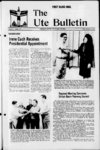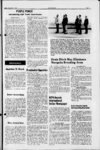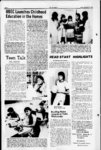Ute Bulletin | 1972-12-08 | Page 7
| Type | issue |
| Date | 1972-12-08 |
| Paper | Ute Bulletin |
| Language | eng |
| City | Fort Duchesne |
| County | Duchesne |
| Rights | No Copyright - United States (NoC-US) |
| Publisher | Digitized by J. Willard Marriott Library, University of Utah |
| ARK | ark:/87278/s63n7xq7 |
| Reference URL | https://newspapers.lib.utah.edu/ark:/87278/s63n7xq7 |
Page Metadata
| Type | page |
| Date | 1972-12-08 |
| Paper | Ute Bulletin |
| Language | eng |
| City | Fort Duchesne |
| County | Duchesne |
| Page | 7 |
| Reference URL | https://newspapers.lib.utah.edu/ark:/87278/s63n7xq7/29822194 |












